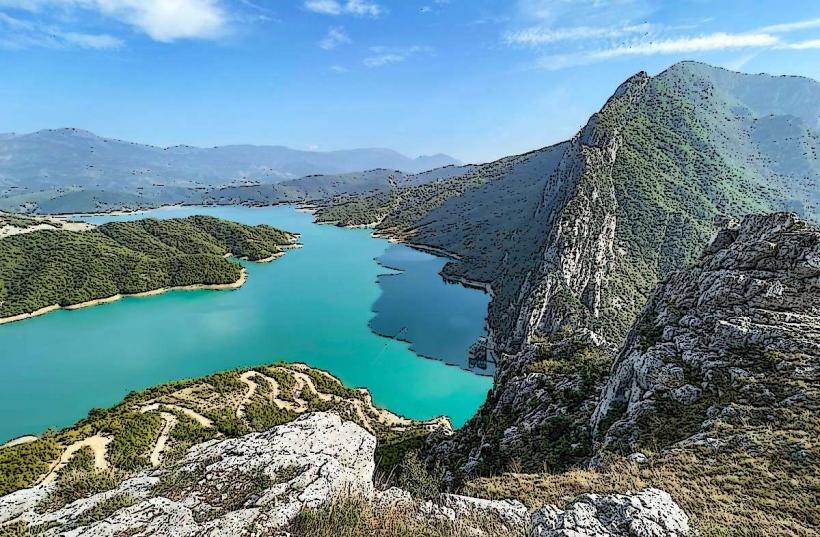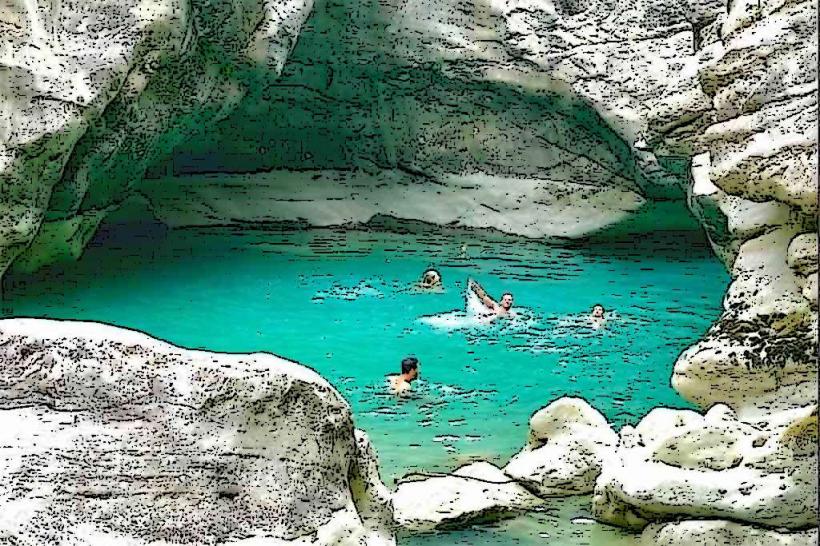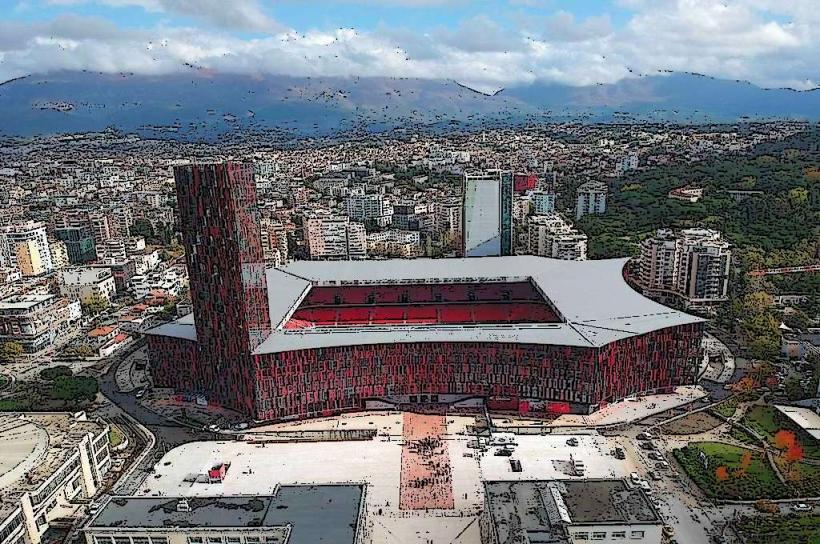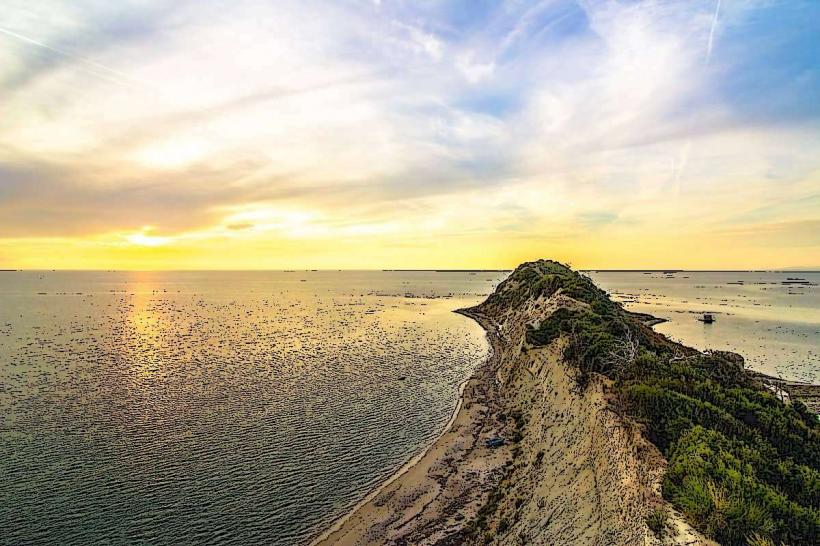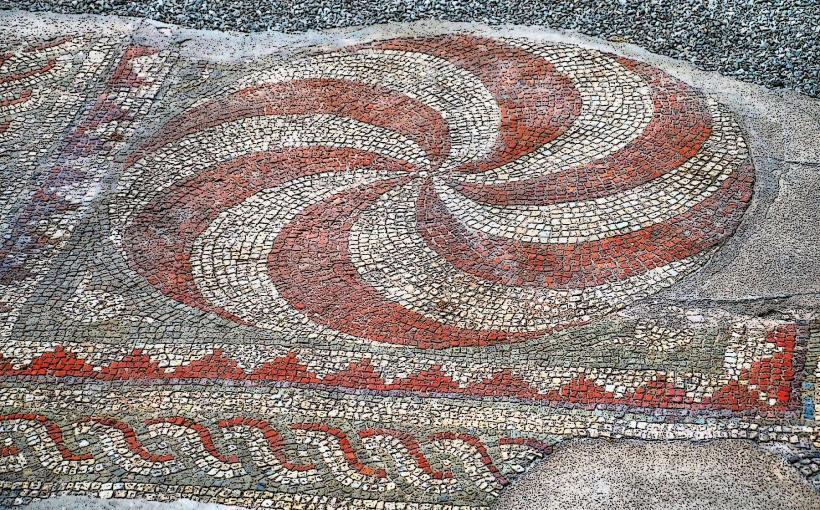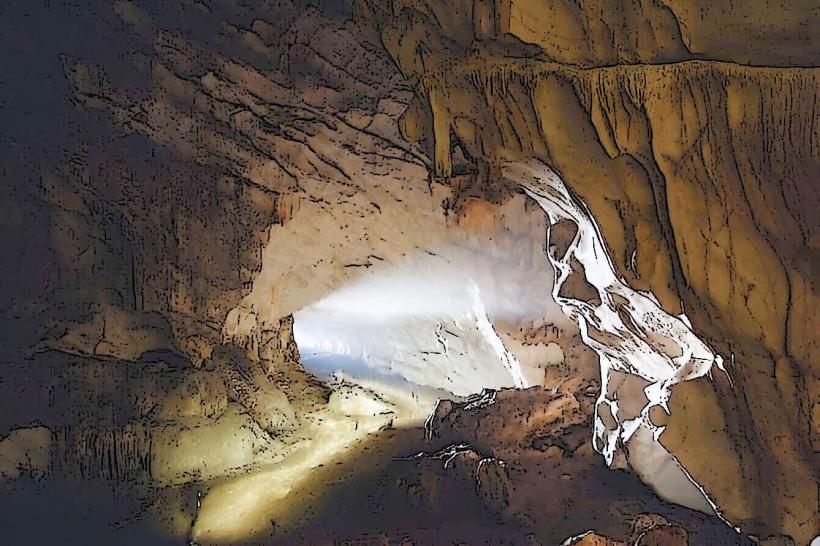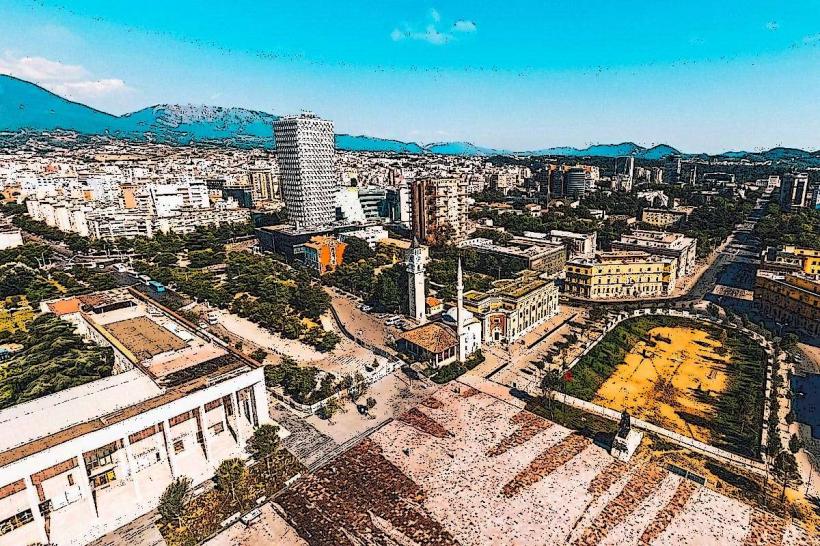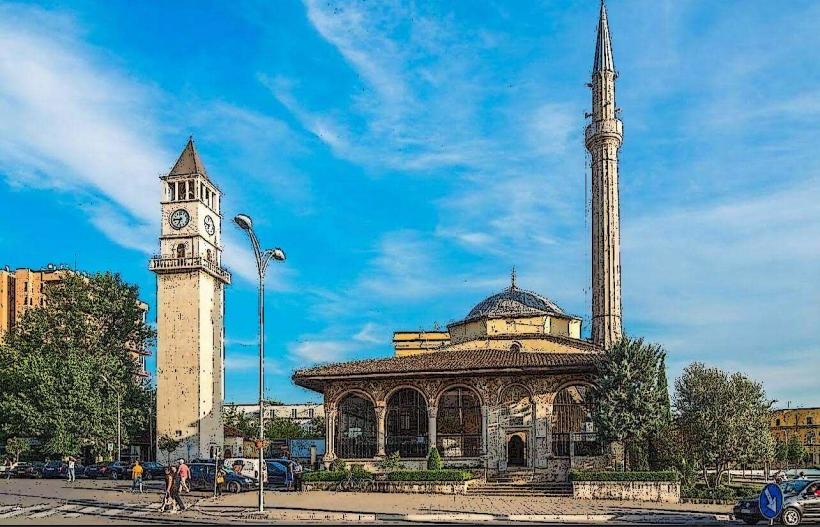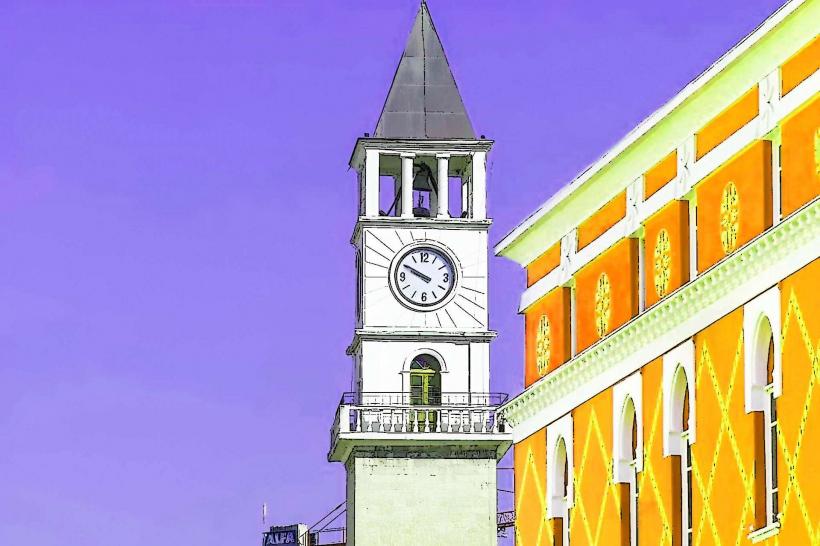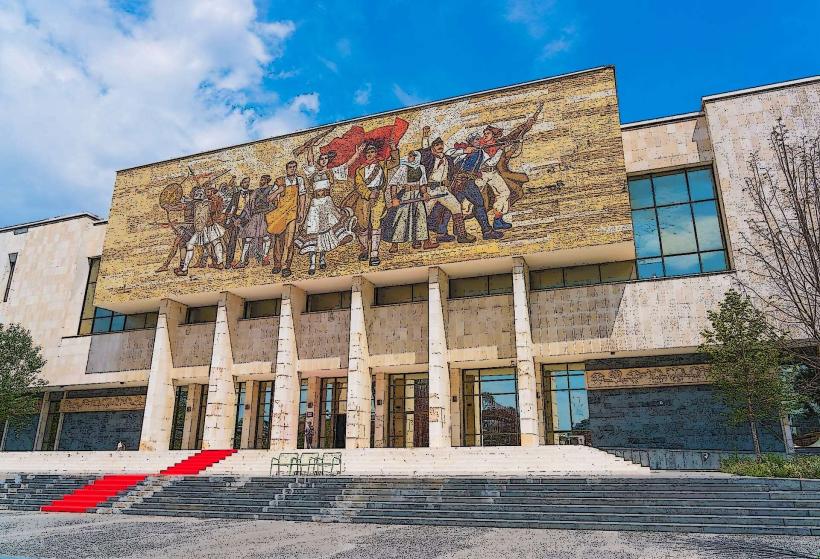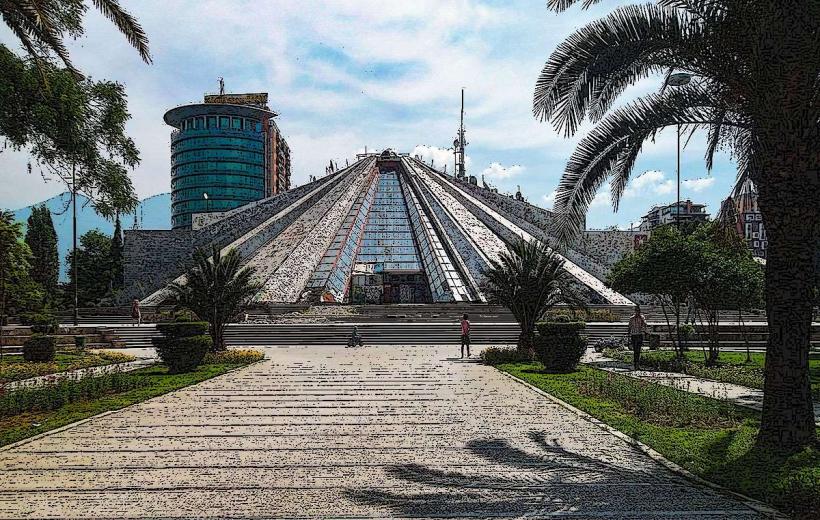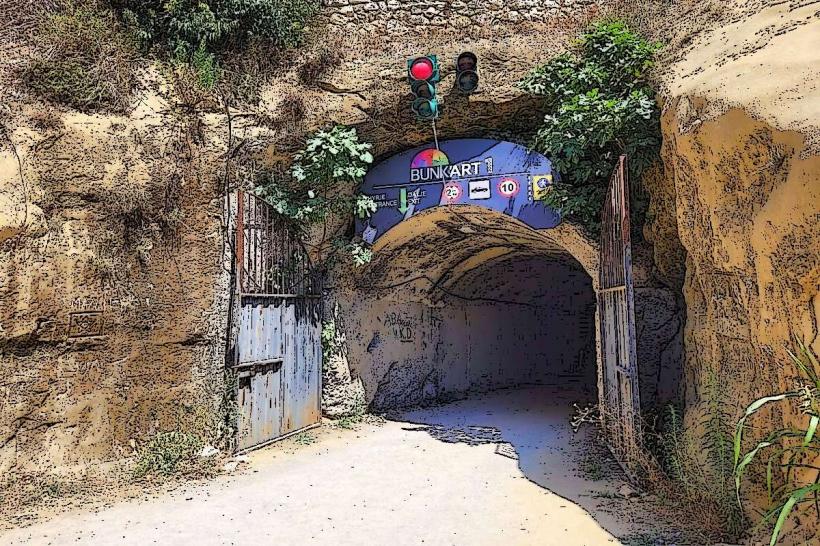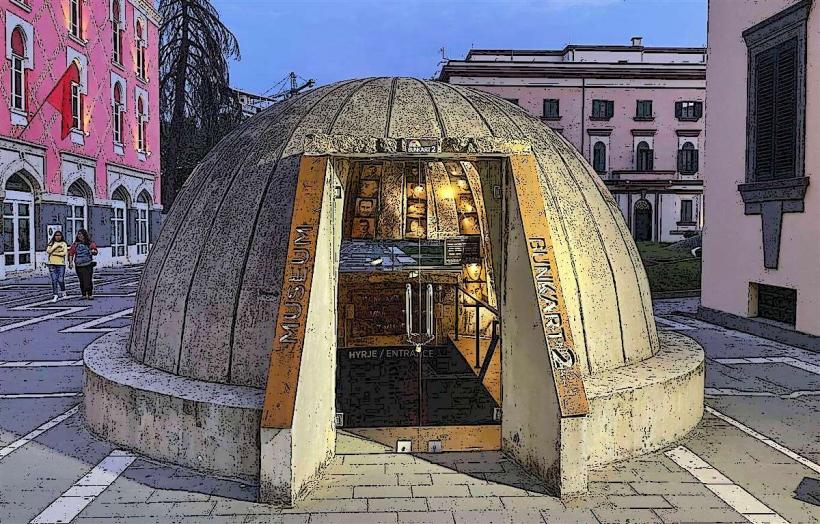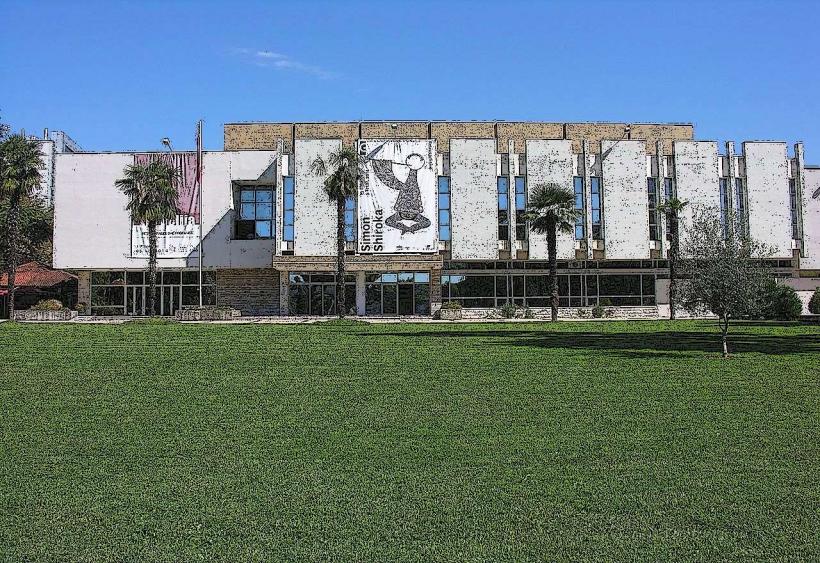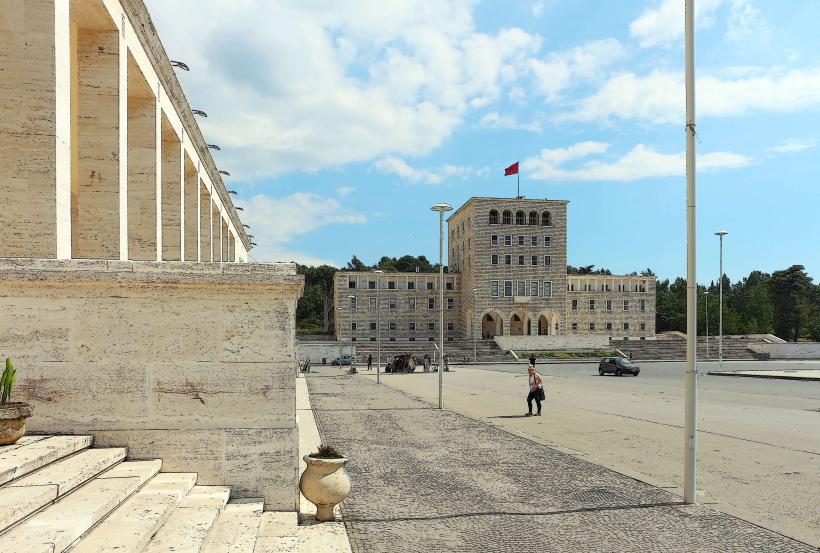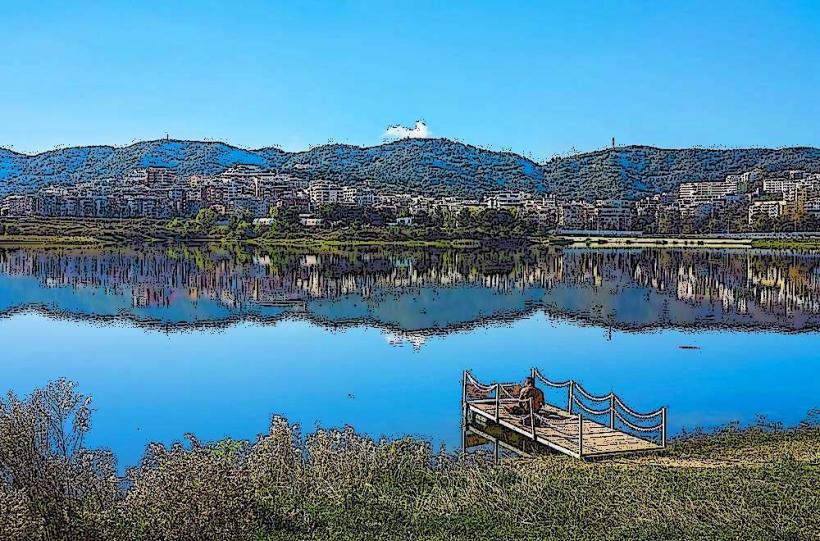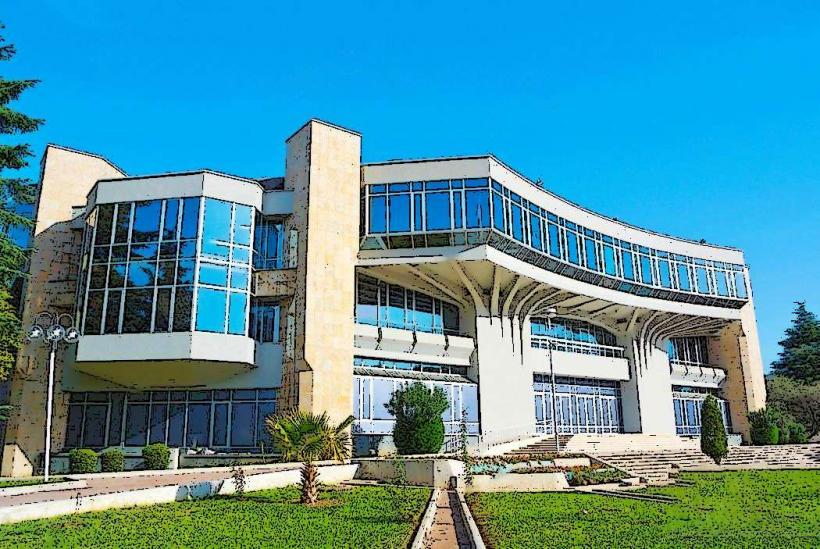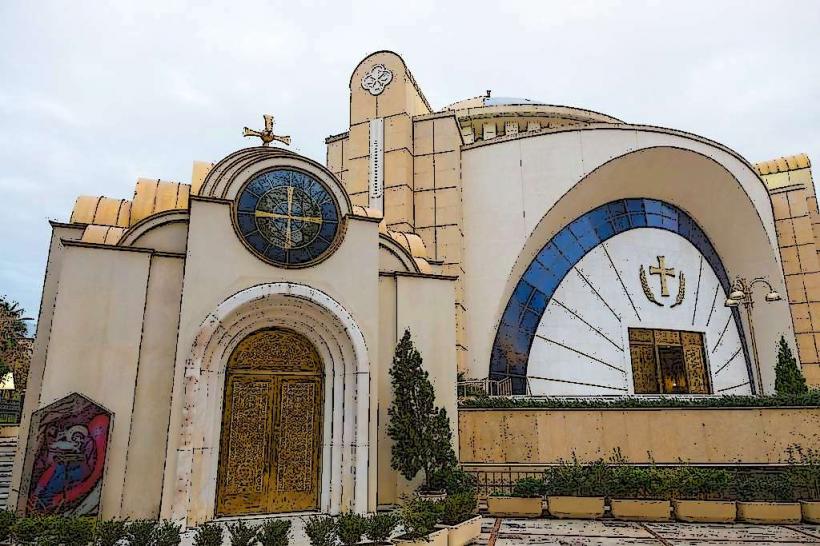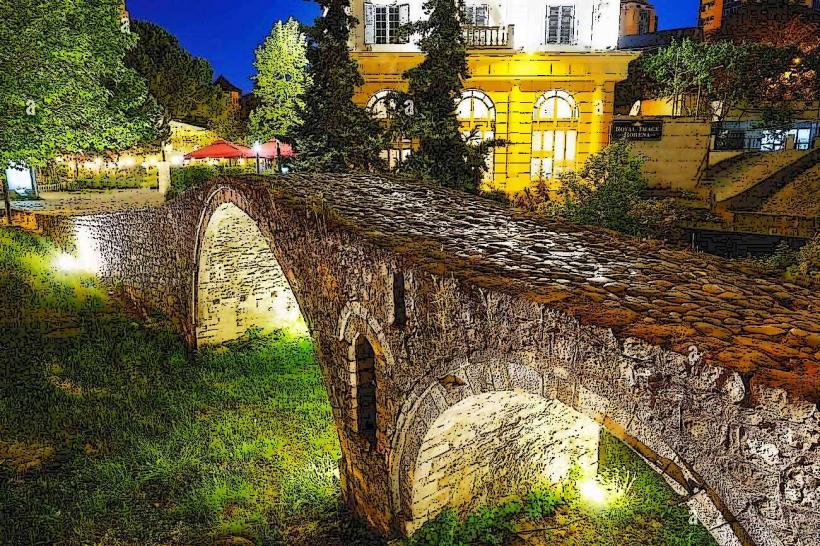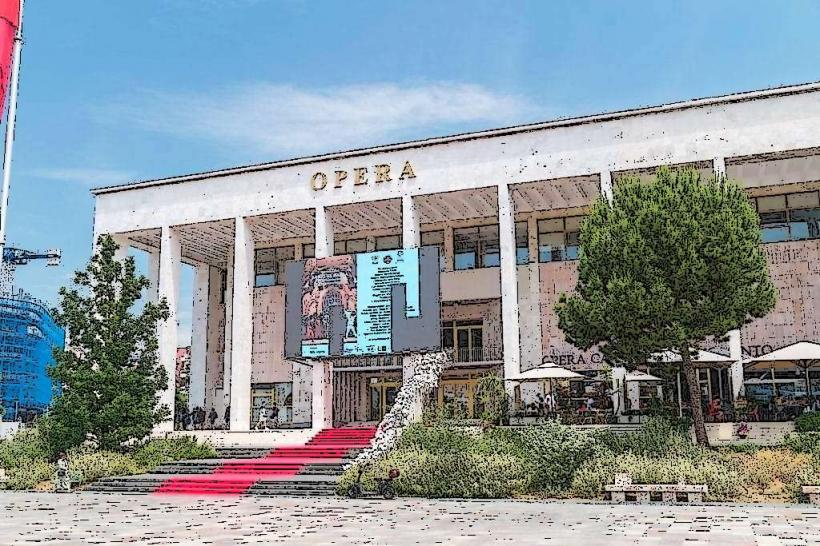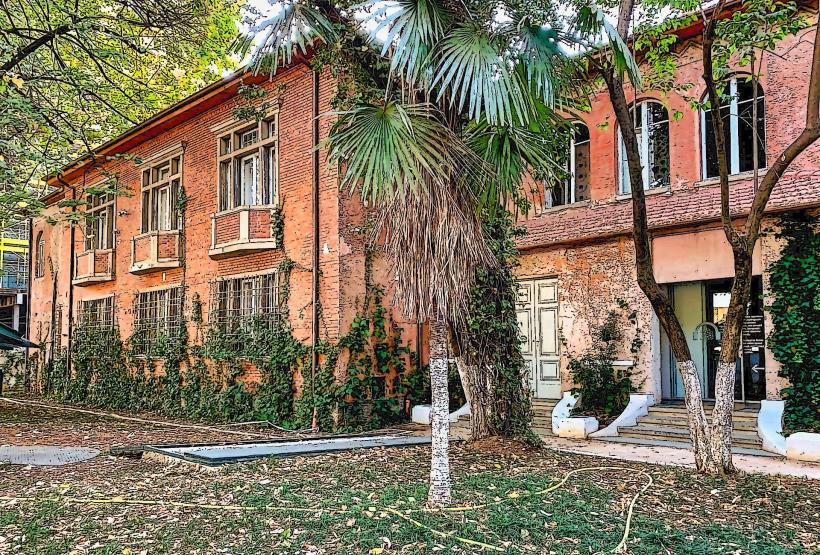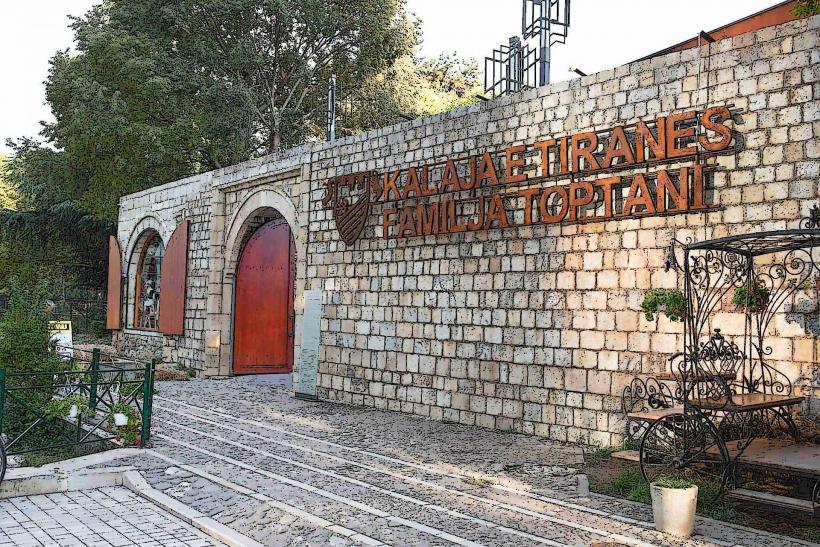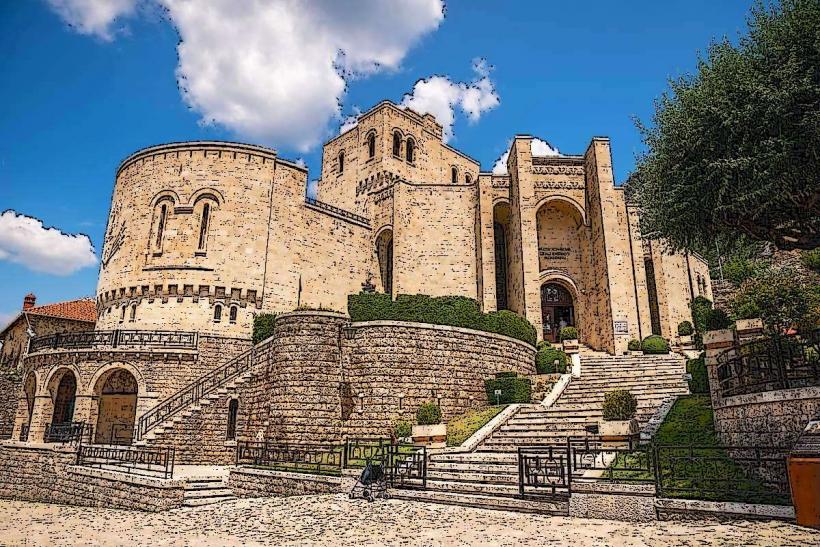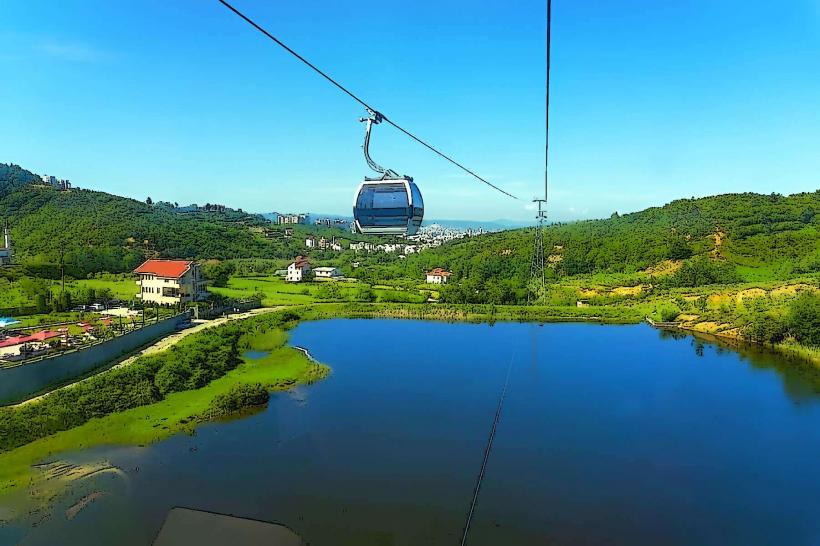Information
Landmark: Presidential PalaceCity: Tirana
Country: Albania
Continent: Europe
Presidential Palace, Tirana, Albania, Europe
The Presidential Palace, also known as the Palace of Brigades (Pallati i Brigadave), is a monumental government residence situated on a hill at the southeastern edge of Tirana. It serves as the official workplace of the President of Albania and a primary venue for state receptions and diplomatic ceremonies.
Visual Characteristics
The palace is a three-story structure designed in the Italian Rationalist style, featuring a façade of white travertine stone and ochre-colored plaster. The architecture is defined by clean horizontal lines, rhythmic window placements, and a lack of ornate decoration. The interior contains grand reception halls with marble flooring and wood-paneled walls, while the surrounding 74-hectare estate is a meticulously landscaped Italian-style garden with geometric hedges, stone fountains, and rows of cypress and pine trees.
Location & Access Logistics
The palace is located on Rruga Elbasanit, approximately 2.5km southeast of Skanderbeg Square. It is accessible via city bus lines traveling toward Sauk or Teg (e.g., the L7 or L2 lines), with the stop located near the palace gates. While the exterior park is occasionally open to the public during weekends, the palace building remains a high-security zone; visitors must park in the small gravel area near the main gate or at the nearby Grand Park of Tirana lots and proceed on foot to the perimeter.
Historical & Ecological Origin
The building was commissioned by King Zog I in 1936 to serve as his royal residence and was designed by Italian architects Giulio Berte and Gherardo Bosio. Construction was completed in 1941 during the Italian occupation of Albania. Following the communist takeover in 1945, it was renamed the Palace of Brigades and repurposed for government functions. The estate functions as a significant ecological preserve, containing rare Mediterranean plant species and a protected forest zone that transitions into the Grand Park of Tirana.
Key Highlights & Activities
Public access is generally restricted to the Royal Gardens, where visitors can walk through the structured terraces and view the external architecture of the palace. Guided tours are rare and typically restricted to specific heritage days or state-sanctioned cultural events. The site is a primary location for architectural photography and diplomatic motorcade observation.
Infrastructure & Amenities
The site is a secure government facility and does not offer standard public amenities like restrooms, shops, or food vendors inside the gates. Shade is abundant within the garden’s pine groves and under the palace porticos. 5G cell signal is strong throughout the area. The nearest commercial services and restaurants are located 0.5km away in the Sauk or Student City districts.
Best Time to Visit
The best time for photography is during the spring months (April–May) when the Italian gardens are in full bloom and the lighting is soft in the early morning. Sunset provides a high-contrast view of the travertine façade against the dark pine background. Public access is most common on Saturday and Sunday mornings, though visitors should verify current security restrictions before traveling.
Facts & Legends
A verified historical oddity is that King Zog I never actually lived in the palace, as he was forced into exile during the Italian invasion in 1939, two years before the building was finished. A local "secret" is the existence of an underground bunker system beneath the palace, built during the Cold War to protect the communist leadership during state banquets.
Nearby Landmarks
Grand Park of Tirana (Parku i Madh): 0.1km West
Mother Teresa Square: 1.1km Northwest
Air Albania Stadium: 1.2km North
TEG (Tirana East Gate): 3.5km Southeast
University of Tirana: 1.2km Northwest

